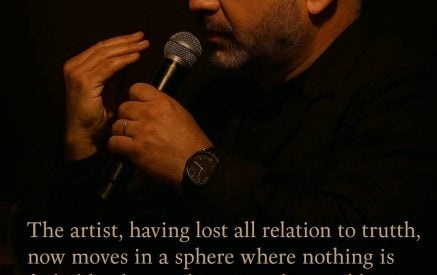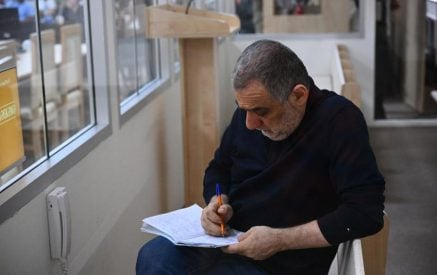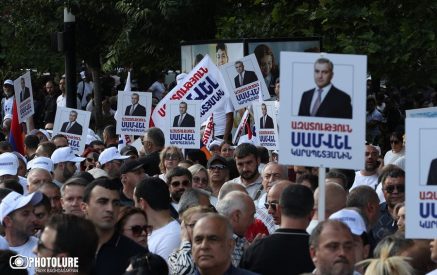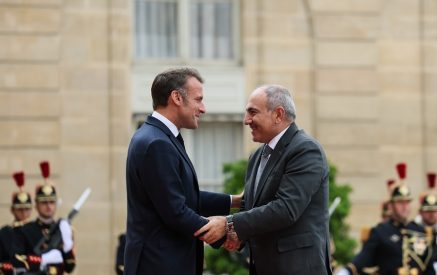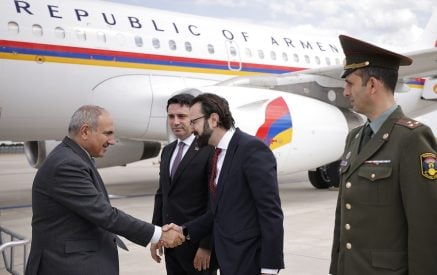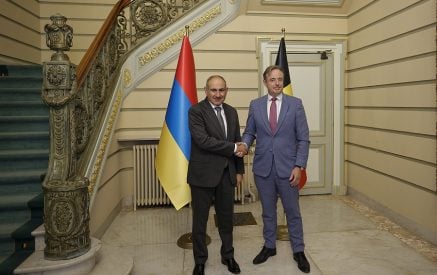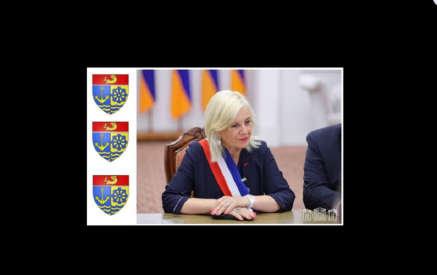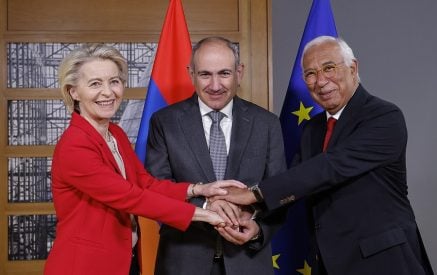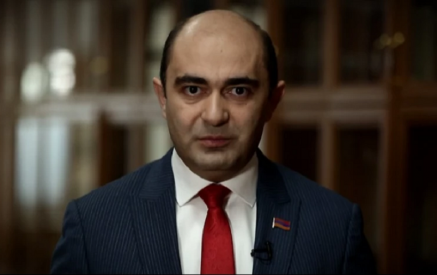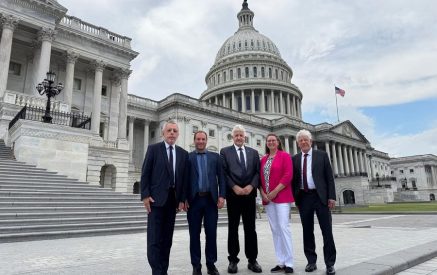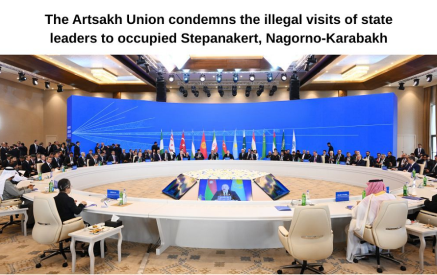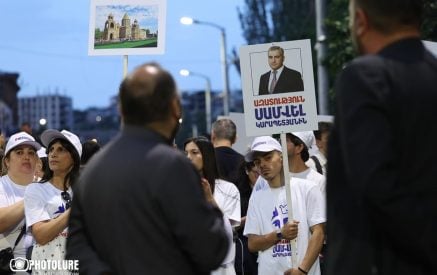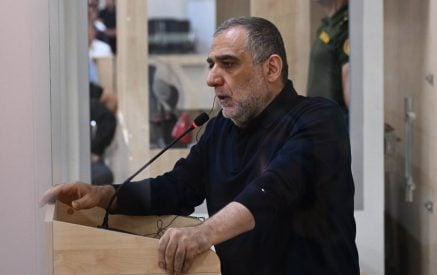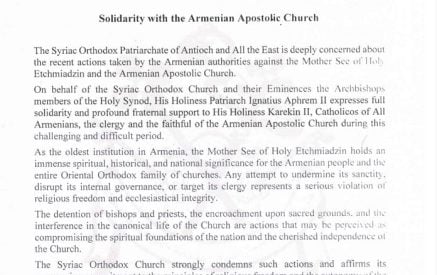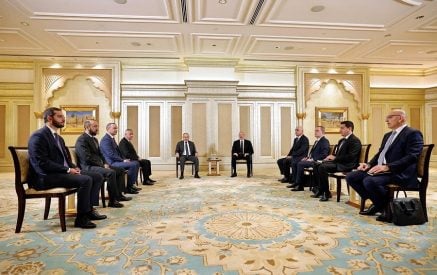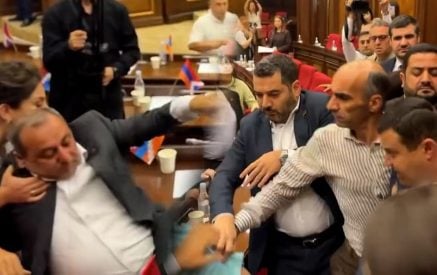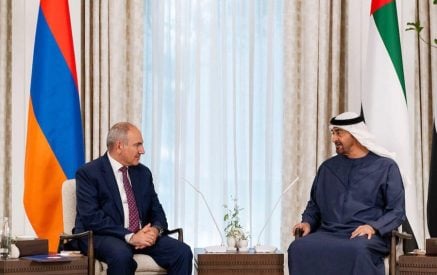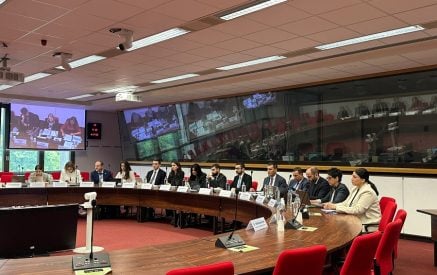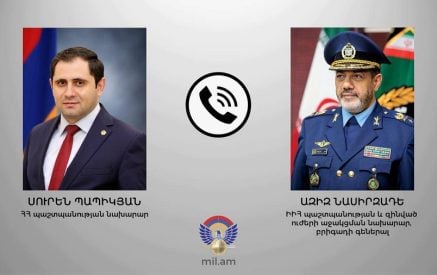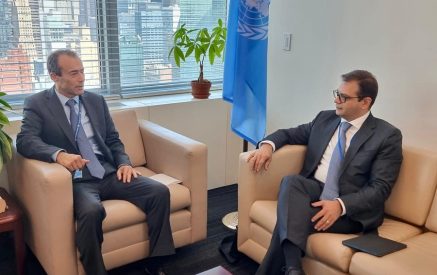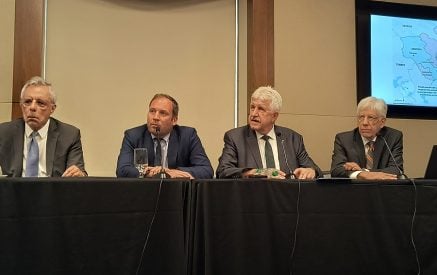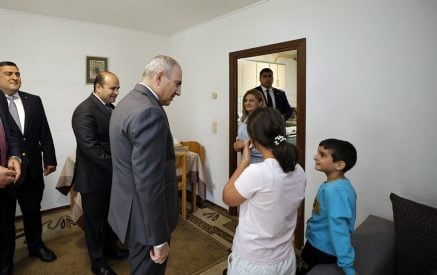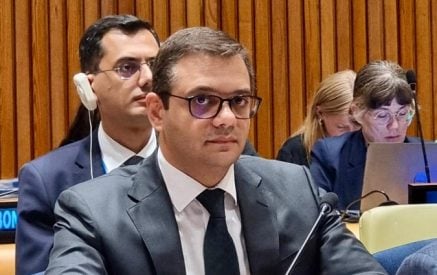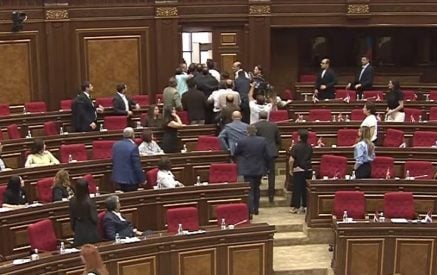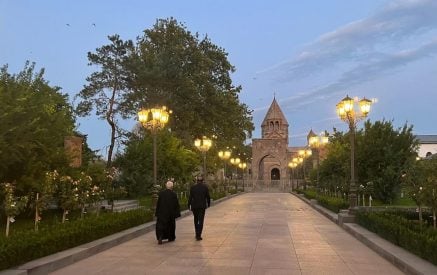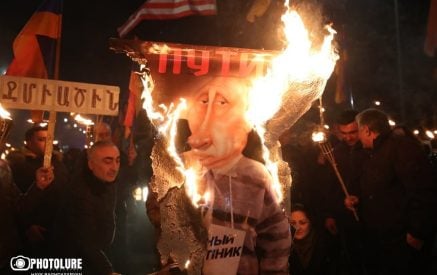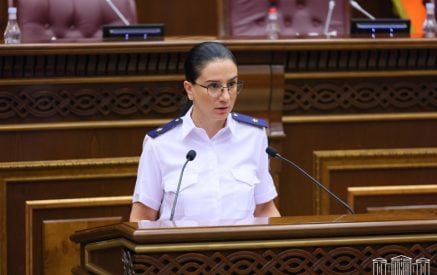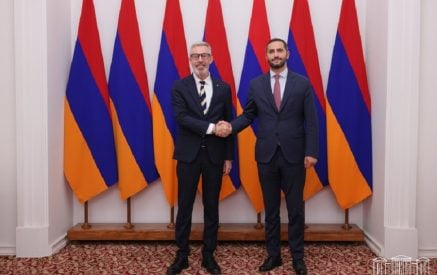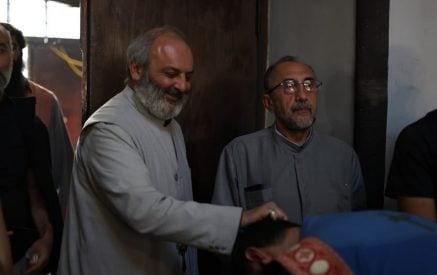“Aravot” talked to Volodymyr Solovyan, expert of Center for Army, Conversion and Disarmament Studies (CADCS), about the 4-day war on Karabakh-Azerbaijani border, the preconditioned events thereof and the expected possible consequences.
“Cynicism of the Russian authorities and passivity of the West loosened the hands of the force.”
– Nagorno-Karabakh problem has been an example of “frozen” conflict for many years. But the resumption of hostilities in Karabakh on April 2 once again reminded the international community that “the Gordian knot” in the Armenian-Azerbaijani relations was not open still after May 12, 1994, when the “Urgent ceasefire agreement” came into effect.
Actually, every year, dozens of soldiers on both sides are dying. In 2013, the collisions were so frequent that the recurrence of serious conflict had become quite realistic. But it did not stop Russia from selling weapons to Azerbaijan. Despite all the declarative agreements aimed at a peaceful settlement, the Kremlin has always wanted to maintain instability in the region and adds wood into the “smoking fire” of the conflict for many years. It is quite obvious that thus Russia wants to tie Azerbaijan and Armenia to its “cart” of internal politics, which today has finally stuck in the swamp of neo-imperialistic ambitions and post-Soviet revanchism. On the other hand, Armenia is ousted from the energy and transport projects, which involved Western companies (South Caucasian gas pipeline, Nabucco project). Brussels has to be engaged in “flirtation” with Baku because Azerbaijan controls the eastern section of South Caucasus gas distribution corridor, the only secure road for the energy resources of the Caspian Sea and Iran.
Read also
The cynicism of Russian authorities and the passivity of the West untied the hands of violence that are in favor of the solution of the Nagorno-Karabakh conflict by military manners. Due to the flow of petrodollars, Baku was able to increase its military capabilities: both in quantity and quality. Naturally, a desire arose to already demonstrate the accumulated military potential in “practice” and compel Armenia to surrender in a couple of principal issues.
The main argument against this scenario was and remains the fact that the instability in the region will become a threat for Azerbaijan’s energy transition. But in Baku, it was taken into account when the Russian South Stream became a competitor to Trans-Anatolian Pipeline (TANAP) which is very important for the economy of Azerbaijan. In early 2015, South Stream was renamed to “Turkish Stream”. But after the downing of the Russian aircraft by Turkey, we must cross off the Kremlin’s projects in the Black Sea region. The confrontation with Ankara and Moscow at the same time is a convenient opportunity for Baku to play with the conflicting states that compete to increase their influence in the South Caucasus since the 19th century. The coincidences of such foreign political situations decided such developments of the events.
“The OSCE police mission may become a more acceptable solution to the conflict.”
– The OSCE Minsk Group formed by permanent co-chair countries for more than two decades failed to establish common approached in the foreign policy. On the contrary, today, we have more become the witness of the crisis of mistrust between the West and Russia since the times of the “cold war”. Consequently, a question arises whether all the participants of the negotiation process, first of all, Russia that views South Caucasus as a region of its economic and political influence, will wish to put aside the destructive ambitions and offer a real mechanism for the settlement of the crisis.
Now, the Madrid principles underlie the peace process. This document has emerged in 2007 but until now the format of its implementation is not yet found that will be beneficial both to Yerevan and Baku. Against our will, we can draw a parallel to the arrangements of Minsk on Donbass that contain numerous controversies and are largely rejected.
Moscow has already presented its interpretation of own proposal on the deployment of international peacekeepers by suggesting to deploy Russian peacekeeping forces. Now, such statements are made to add extra pressure on the two sides. But if this scenario comes true, Moscow will obtain all levers to influence the available situation in Karabakh. In recent weeks, it was clearly shown that Russia has no intention to present Armenia’s interests as the Armenian authorities were expecting by accession to the Eurasian Economic Union and extending the presence of the Russian base in Gyumri until 2044. Therefore, the preliminary agreement on the contingent of Russian troops which was issued by Yerevan officially causes a surprise. I think that the OSCE police mission can become a more acceptable solution that will contribute to the demilitarization in Nagorno-Karabakh where the Russian side will not have the status of monopoly. During the war in Donbass, Ukraine has raised this issue not once but this initiative has not yet received an adequate understanding by other participants in the negotiation process. But by uniting the forces, our countries could convince the West that expanding the OSCE toolset is a must.
Until then, the parties to the military conflict as in Nagorno-Karabakh so as in the Donbas will be divided by the shooting areas separating each other on the 100-meter distance while the truce will remain only on the paper.
“Once again Russia extinguishes the fire with gasoline”
– It is no secret that in comparison with Armenia, Azerbaijan had obtained a bigger military legacy from the Soviet years. Despite this, in the military campaigns, until 1994, Armenia was not only able to defend its interests in Nagorno-Karabakh but also expand the area under control.
Nevertheless, the rise in international prices of energy resources in recent years allowed Baku significantly to increase the military budget. Today, its military expenses exceed Armenia’s expenses three times. In the meantime, the most important agreements on the procurement of Russian weapons were signed. Certainly, by arming Azerbaijan, the Kremlin could not but understand that sooner or later it will be used in Nagorno-Karabakh, in full combat operations. It turns out that Russia once again extinguishes the fire with gasoline.
Moscow brings absurd arguments to justify itself, they say that their weapon will make Azerbaijan dependent on Russian weapons. But this in no way contributes to the reduction of tension on the Armenian-Azerbaijani border under the permanent “trench war” conditions.
Moreover, the Kremlin is demonstrating its entire contempt towards the national interests of the country in whose territory it has rented a military base. After the hostilities, not waiting even for the launch of the talks, Dmitry Rogozin stated that Moscow will continue to supply weapons to Azerbaijan. Such position of Russia finally destroys the allied relationship as if turning it into feudal-vassal relations.
“Iran’s cooperation with Armenia can pull Armenia out of the isolation”
– The establishment of the energy-transport corridor which connects the Persian Gulf and the Black Sea will significantly change not only the geopolitical landscape of the Caucasus but also a number of neighboring regions. The road from Armenia to Georgia can become an alternative route for the transportation of the Iranian blue fuel to Europe and the Balkan peninsula bypassing the Turkish Kurdistan instability hotbeds.
The main obstacle for the creation of an energy bridge in Armenia is the lack of a liquid natural gas terminal in Georgia for transporting gas to consuming countries. But after discovering 5.3 trillion cubic meters of natural gas in the South Kakheti by the American Frontera Resources Corporation, this problem is possible to be solved soon.
The Ukrainian authorities, still last summer, have signed a memorandum with Frontera Resources Corporation for the construction of a liquid natural gas terminal. Given the recent friendly relations between Kyiv and Ankara (with the principle of “my enemy’s enemy is my friend”), Turkey does not intend to open the Bosporus for the tankers with liquefied petroleum gas, in the near future, Ukraine can obtain gas thru the Black Sea from the Caspian Sea or the newly opened Georgian mines. The latter’s development would also help Armenia to reduce its dependence on Russian gas.
So far, no specific steps are outlined to make Georgia a gas exporting country. Iran’s cooperation with Armenia can lay grounds for close ties between the Persian Gulf and the Black Sea energy resources. The implementation of this project will enable Armenia to break the isolation in which it has appeared by geopolitical factors and due to the short-sighted domestic policy of the authorities. Certainly, such a scenario is contrary to the interests of the Kremlin. Russia will do everything to keep Armenia as a hostage to its policy in South Caucasus.
“Ukraine will not accept such a farce led by Russia”
– We must take the fact into consideration that as in the zone of anti-terrorist operations in Ukraine, so as in Nagorno-Karabakh, the military clashes do not happen all along the border, there are relatively quiet sections in the line of contact, as well as “hot beds”. As of today, the positions of Ukrainian army in the suburbs of Donetsk near Mariupol continue to be one of such positions. The OSCE monitoring mission encounters greater difficulties in its activities in this direction, and the heavy military equipment, which according to the terms of the ceasefire should be pulled back from the line of contact, is being actively used.
The death of tens of soldiers of the Ukrainian side as a result of shelling that is implemented in Donbass by the pro-Russian fighters every day constantly reminds that the Minsk Group agreements do not function. The main reason is that as of today there are no conditions created for holding democratic elections in Donbass by Ukrainian legislation.
According to the Minsk agreements, Ukraine can regain complete control with Russia along the border only after the elections in Donbass and militants’ amnesty. At the same time, every day, in the Ukrainian-Russian border beyond the control of Kiev, a “defense ministry retail shop” is operating and the so-called leadership of the Donetsk and Lugansk peoples’ republics openly denies the involvement of Ukrainian political parties or the mass media in the elections, which was stipulated in the Minsk Agreement. Obviously, Ukraine will not accept such a farce.
Hripsime HOVHANNISYAN



